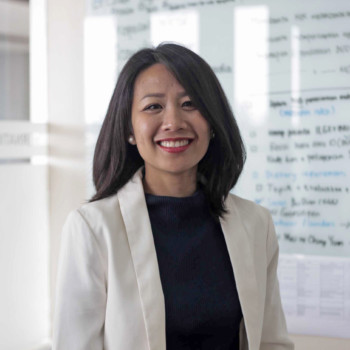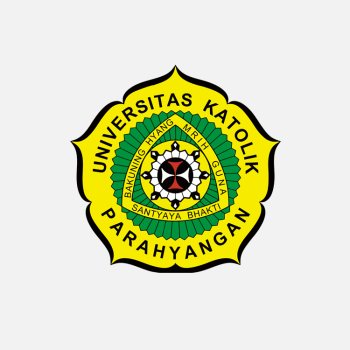

ACICIS Partner University
Parahyangan Catholic University, Bandung
Faculty
Faculty of Social and Political Sciences
Spokesperson
Ms Ratih Indraswari SIP MA
Role
Head, Division of Cooperation, International Office; Lecturer
“Living in a global world means that no one can afford the luxury of ignorance.”
Ms Ratih Indraswari SIP MA
Head, Division of Cooperation, International Office
Parahyangan Catholic University (UNPAR), Bandung
This article first appeared in the ACICIS Annual report 2017. Click here to read the Report.
Please reflect on your time teaching ACICIS or international students at UNPAR
My first experience teaching an international class has been teaching a course on “International Relations in Southeast Asia”. The subject has always been popular among ACICIS students as it provides different perspectives on how scholars understand regional issues. The class is exactly what I think an academic discussion should be like – challenging but informative. Having a significant number of international students in the class provides a strong foundation for fruitful academic discussions between students. Opposing arguments are essential in a good academic environment as exposure to alternative views pushes students to re-think and re-analyse their understanding of a subject. I, personally, find it truly enjoyable to see both Australian and Indonesian students engage in debates, advancing their arguments but at the same time internalising the contrasting opinions.
Describe the impact of having ACICIS students in your class – and, more broadly, at your university – for your students and your university.
Pursuing a strategy of “internationalisation at home” directly influences our [UNPAR’s] students, lecturers, and the university in a positive way. By having inter-national students in our classes, Indonesian students are forced to be out of their comfort zone. This allows them to be more proactive in their search for knowledge, to develop their competencies, and to upgrade their language skills. Likewise, our international students are exposed to a variety of perspectives that no doubt challenges their preexisting assumptions. The richness of the discussions between students and lecturers strengthens the quality of knowledge exchange. [The presence of ACICIS students means] lecturers are expected to improve the quality of their international curriculum, leading to better international collaboration with other international partners – in terms not only of teaching but also research. The benefit spills over to whole departments and, from there, to the whole university, providing incentive for UNPAR’s efforts towards internationalisation.
What is your advice for prospective ACICIS students? Why would studying at UNPAR – and, more broadly, in Indonesia be beneficial for them?
Living in a globalised world means that no one can afford the luxury of ignorance. For scholars interested in international relations, awareness of other countries acts as a solid foundation for future academic and professional engagement. The International Relations Department at UNPAR is one of the best such departments in Indonesia and has been offering the IRP (International Relations Program) with ACICIS for more than 10 years now. Our lecturers have taken their postgraduate studies abroad, bringing back with them a global perspective to Bandung while still being able to provide ACICIS students with an Indonesian perspective on international studies. UNPAR is located in the centre of Bandung, yet the campus is secluded enough to avoid the busyness of downtown. Our urban campus is easily accessible
from Bandung’s international and domestic airports and is only three-and-a-half hours train journey from Jakarta. Located at higher altitude [than Jakarta] and surrounded by hills, Bandung’s climate is mild with an average temperature of 26° Celsius year-round. UNPAR provides a supportive academic environ-ment and comfortable living conditions for ACICIS students.
In the next decade, what role will ACICIS play in the Australia-Indonesia bilateral relationship?
Australia and Indonesia are neighbouring countries, close in terms of distance but relatively far in terms of socio-cultural, political and economic outlook. These discrepancies contribute to the challenges and hurdles of relations between the two countries. The need for us to know and understand each other is not just a nice rhetorical statement. I believe mutual understanding comes from interaction between citizens of both countries. People-to-people contact by students serves as a seed for better engagement. A meaningful exchange of values will be realised out of the direct interaction of the two different cultures. In the future, these young students will become the leaders of our nations, and will decide and lead the trajectory of Indonesian-Australian cooperation. ACICIS certainly will play a primary role in facilitating and ensuring an integrative model of student engagement between Indonesia and Australia, and contribute to the fostering of a better relationship between our neighbouring countries.
